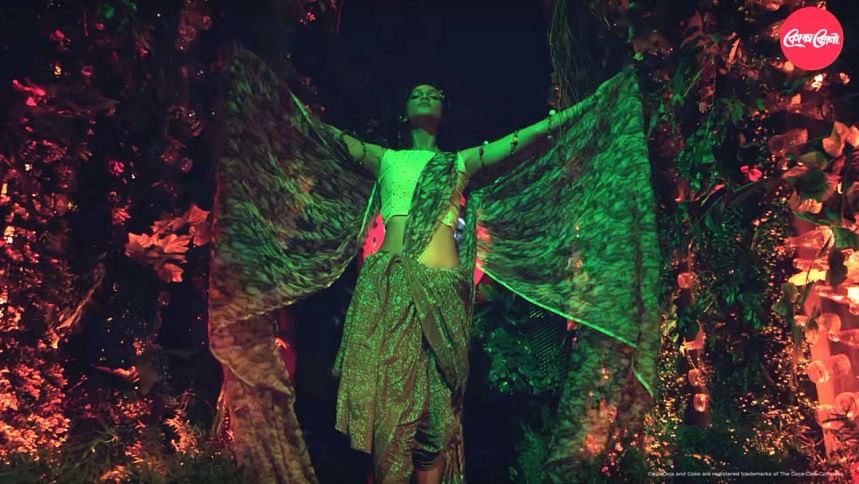‘Bonbibi’: When music has a soul

As I sit down to write this past 3 am on a still night, with only the faintest breeze blowing through my window, I can't help but see promise in the time to come. I can't also help myself from being a little sceptical about whether I'm actually equipped to spill my thoughts on this.
I'm no musician; my knowledge of good and bad music goes much beyond the superficial but, what do I know of the technicalities that goes into creating something that emerges as an enchanting composition?
Having said that, I can only venture to share what I heard in this song, what I felt about it, and perhaps allow a glimpse into how this song shows us that when people put their hearts into their creation, the essence of that always manages to find a way to a wider mass and tie us all together with the same thread.
From the very first moment that the percussions start—the chirping of the birds, the rustling of rice morsels on a 'kula', the melodic vocalisation of the choir on "Khonar Bochon", and Jahura Baul's powerful voice taking over—one can tell this would be a significantly different ensemble from what we've heard from Coke Studio Bangla in the past.
Not wanting to hold onto any of the premeditated understanding of Meghdol's defining music style, I tried to concentrate on Shibu Kumer Shill's storytelling. Naturally, the excitement to hear how he would envision, adapt, and narrate the story of "Bonbibi" kicked in. Ofcourse, the exceptional poet that he is, his words are always so articulate and emotive.
Yet, as soon as the first few beats of the drum sounded, followed by strums of the guitar, and eventually the serenading keys and the flute, I found myself hypnotised by the melody that flowed.
This was, perhaps the first time, that I was gently nudged away from being fixated on one of Meghdol's lyrics to sit, for all of seven minutes and twelve seconds, in awe of how all the instruments collectively worked together to create a breathtaking piece of music. Everything else in my periphery stood silent and all I could do was take it all in. Every strum and wave, the melodies that ebbed and flowed alleviated by drum beats, the sweetness of the flute, and the cheers of the singers—all sung in harmony to celebrate nature.
The set design did much to add to that too; visually, it created space for the story that the musical group is trying to tell—of forests, fables and earthen beauty. The serenity that resides within the simplicity of nature and of great people like SM Sultan who have spent a lifetime trying to convey that through their craft. Sitting in one of the structures produced by the 'great big Dhaka shohor', I found myself yearning to escape to the mountains. Yet, at the same time, listening to the song, I found myself lost in a natural world.
There are many elements working in this orchestration, not unlike how an ecosystem works. "Bonbibi" creates a near-perfect microcosm of that by bringing together multiple stories, the interplay of a host of instruments—including a variation of vocals—and a vast array of visual components and colours. It is a kaleidoscopic arrangement that could have easily failed, or at least, clashed with each other (as "Murir Tin" did, for me). But somehow, all the pieces aligned meticulously to give us something wonderful.
I think I echo a thousand voices when I say, it is only fitting that Meghdol would create a song as magical as "Bonbibi".

 For all latest news, follow The Daily Star's Google News channel.
For all latest news, follow The Daily Star's Google News channel. 





Comments